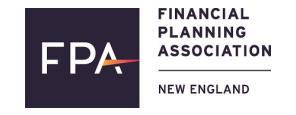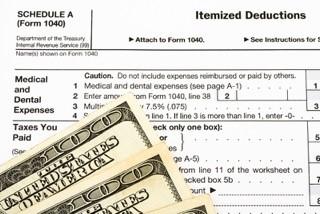Do you see your tax refund as a cash windfall or a partial return of a paycheck? No matter how you see your potential tax refund, there are a few strategies that can help you make the most out of the excess cash. Rather take a vacation? While that is certainly possible (and probably more fun), don’t miss out on the opportunity to put the excess cash to work for you. These strategies can help you get the most out your tax refund.
Saving for Retirement
Although retirement may seem far away, it is never too early to start planning for it. If you don’t anticipate a pressing need for your tax return funds in the short term, consider investing it into a Roth IRA. A Roth IRA is funded with after-tax dollars and grows tax-free as long as you wait at least five years to withdraw any funds. Another benefit of the Roth IRA is that there are no required minimum distributions (RMDs) later in life, which makes the Roth especially unique.
Unfortunately, not everyone is eligible to contribute to a Roth IRA. In 2016, income limitations are as follows: for single filers, the contribution limit will begin to phase out for those with a modified adjusted gross income (MAGI) over $117,000, married couples filing jointly will have their contribution limits reduced with a MAGI over $184,000. In 2016, there is a $5,500 contribution limit to the Roth IRA; $6,500 for those over 50 years old.
Invest it in the Market
Instead of spending your tax refund or putting into a savings account only to earn a low annual percentage rate, consider investing the money. The IRS allows tax filers to directly deposit their federal and/or state tax refund into up to three separate brokerage accounts. A brokerage account may be a good option for those who may need the cash before retirement, but not within the next five years or so. If you expect to need the cash before then, it may be better to keep it as cash.
Like a Roth IRA, investing the tax refund proceeds in a brokerage account may help promote savings and compounded growth. Holding the funds separate from your daily savings and checking accounts may reduce the temptation to use the money on lifestyle expenses.
Pay Down Debt
Another potential solution for your tax refund is to pay down debt. This strategy is especially appropriate for someone with a high interest rate. Making an additional payment to reduce the principal balance can save a lot in compounded interest expense in the long term. Remember though, not all debt is treated equal. This tactic can most benefit those carrying a balance on a high interest credit card or someone with student loans, especially in situations when their income is too high to receive a tax deduction. While paying down a mortgage is an option, consider the potential impact on your overall tax situation first.
Fund a Financial Goal
Consider using the cash back towards one of your financial goals. Creating a separate account for a specific goal can be advantageous so that the funds are not accidentally used for other expenses. By clearly labeling each account, it is also much easier to see how you’re tracking towards your goal, and what changes you may need to make to get there.
However you decide to use your tax refund, remember that the funds don’t represent found money. Think of it like a piece of your paycheck back in your pocket. Like most paychecks, you probably put a portion towards retirement, expenses and debt, and also savings. Make the most of your tax refund by choosing one strategy, or allocating the funds among all of them.
Financial Planning Association of New England member Kristin McFarland is a Wealth Advisor at Darrow Wealth Management in Boston. Darrow Wealth Management is a fee-only asset management and financial advisory firm focused on building and preserving the wealth for their diverse client base.
Kristin McFarland is an investment adviser representative of Darrow Wealth Management, an SEC registered investment adviser located in Massachusetts. The material contained in this article is for general information only and should not be construed as the rendering of personalized investment, legal, accounting, or tax advice.

